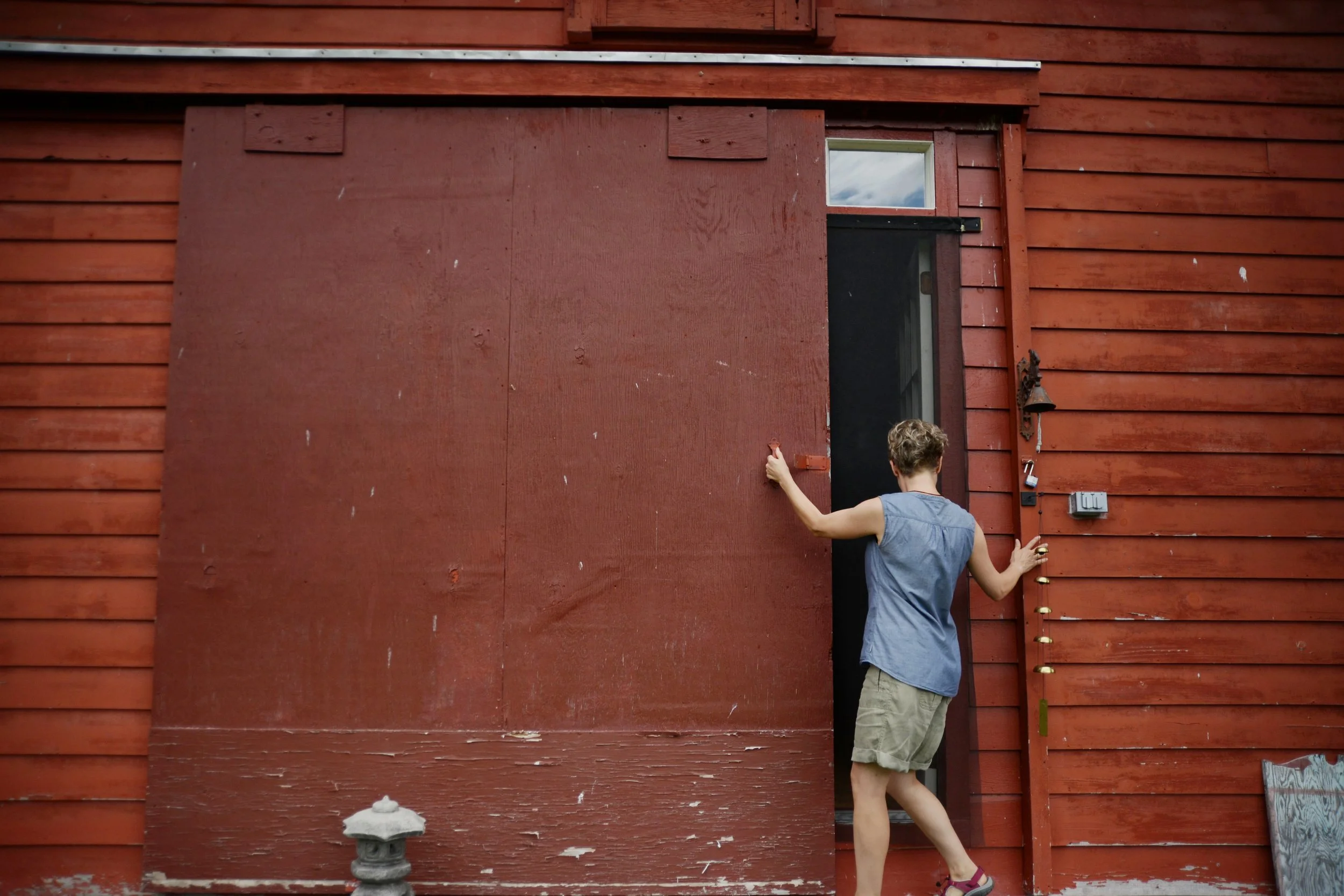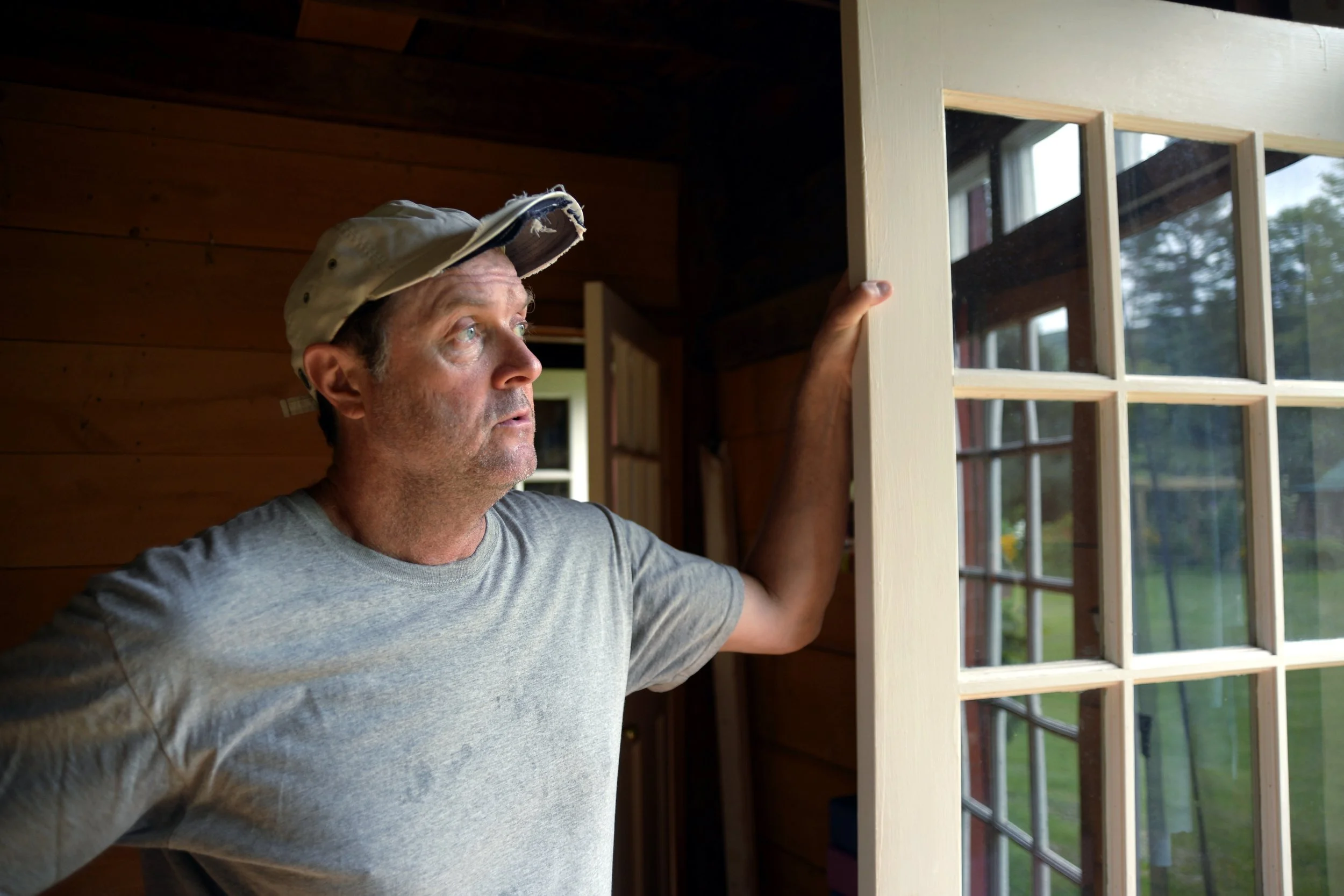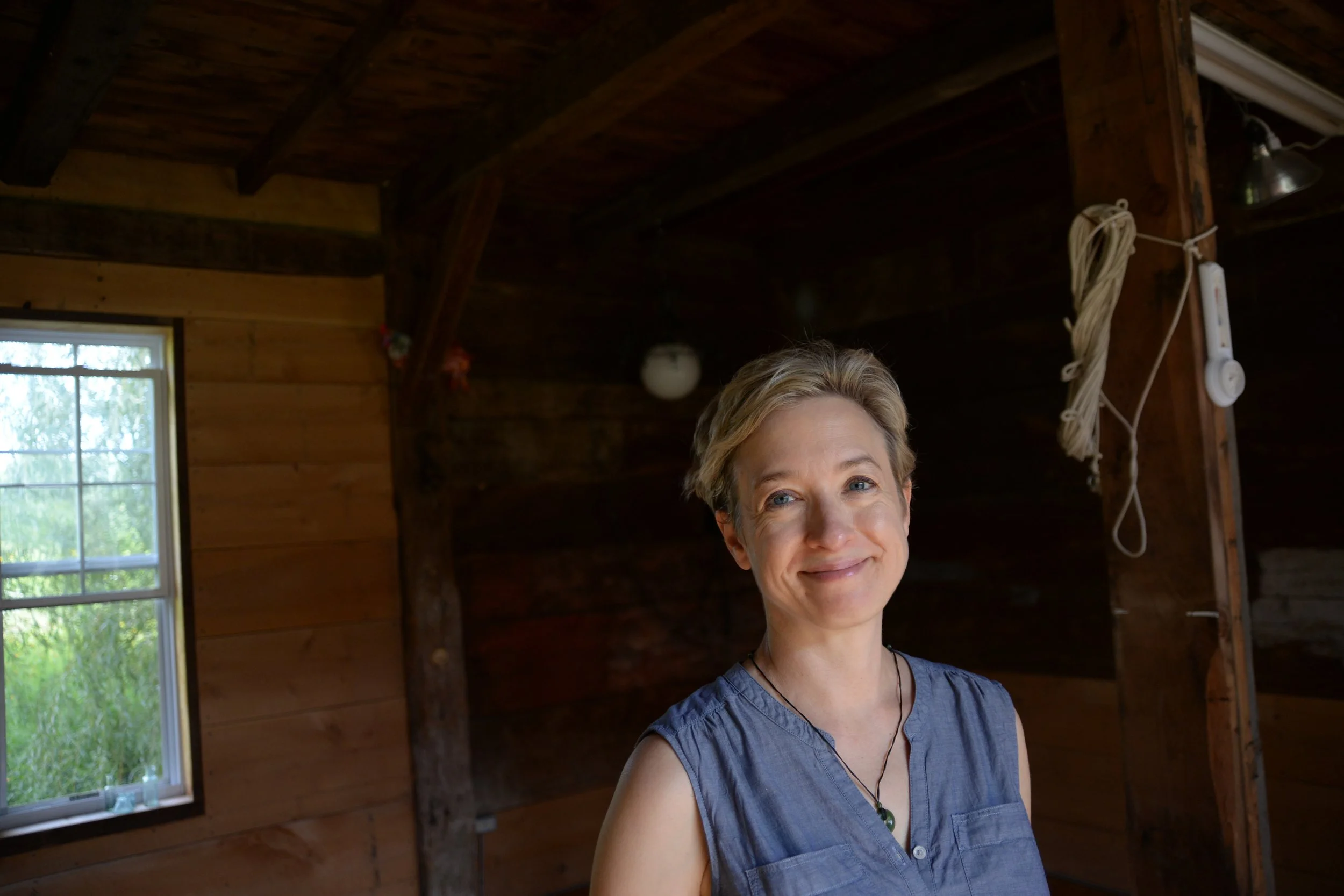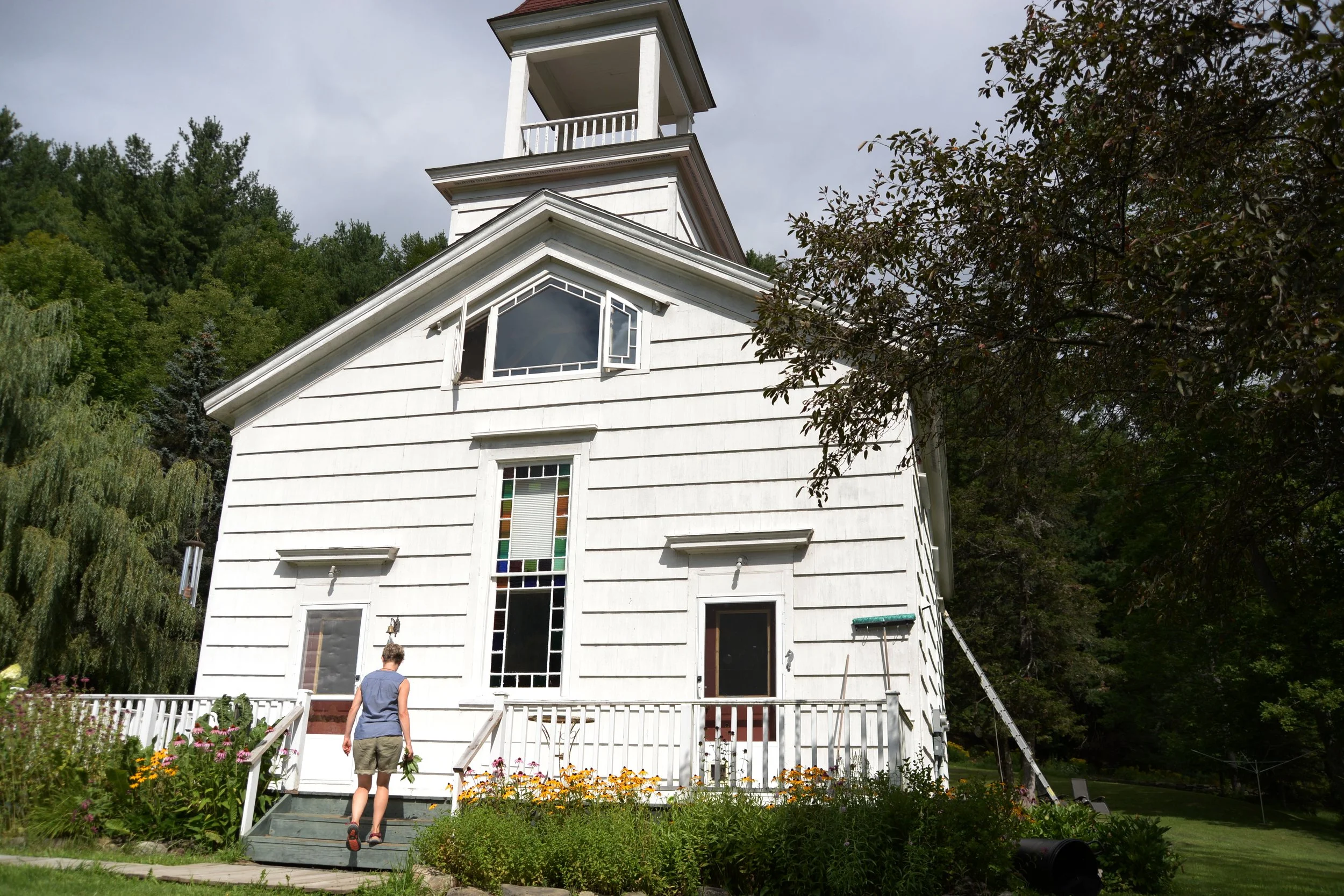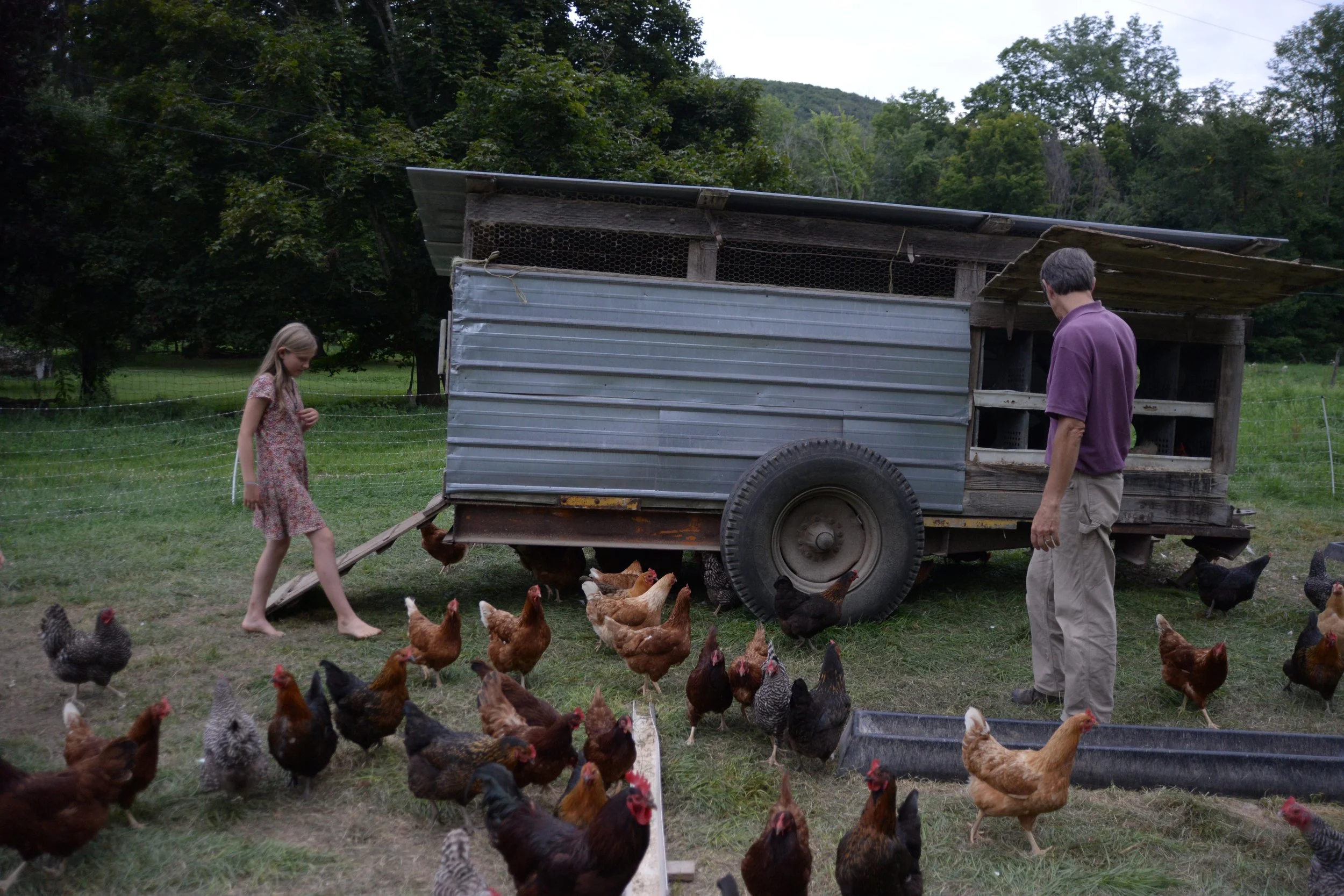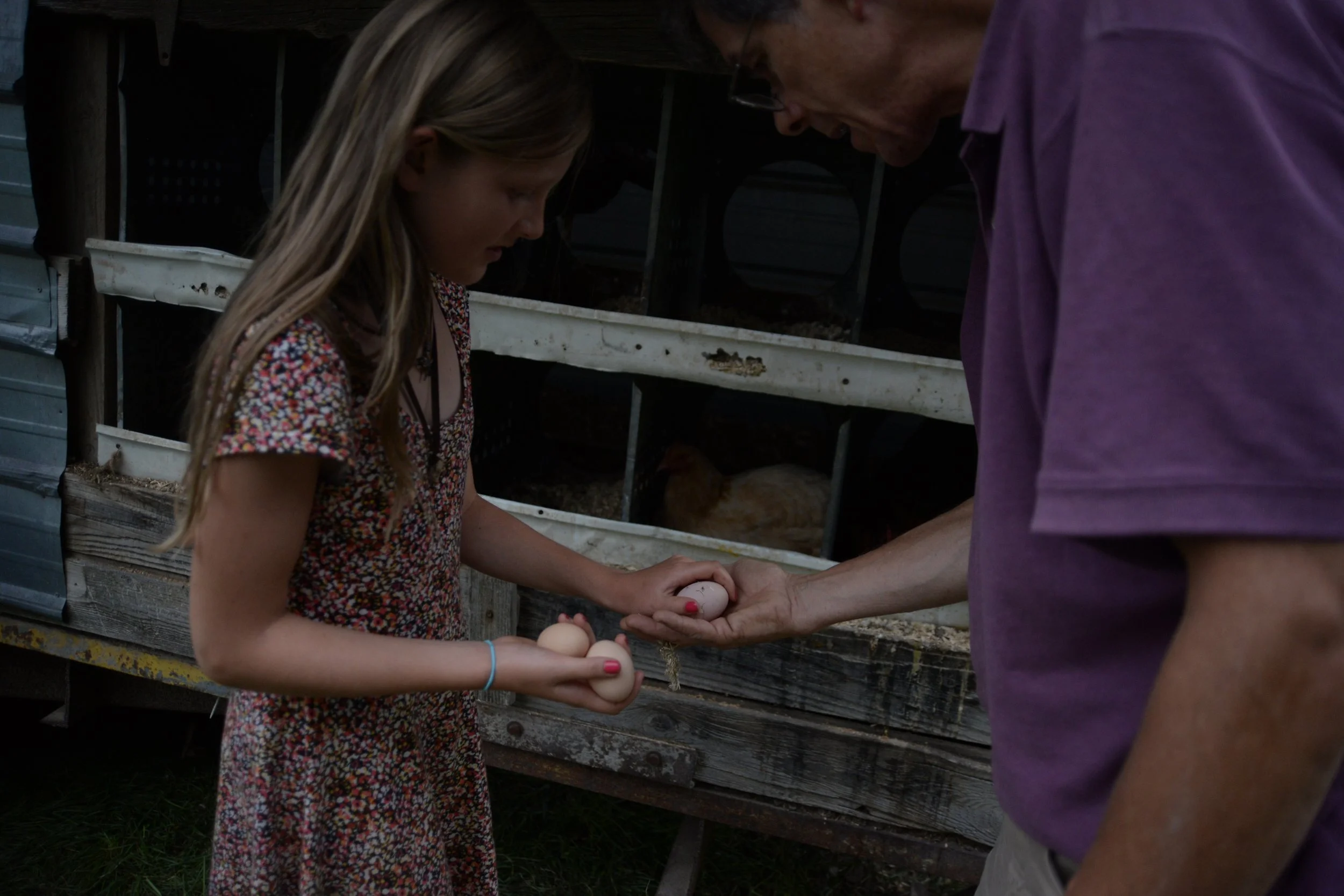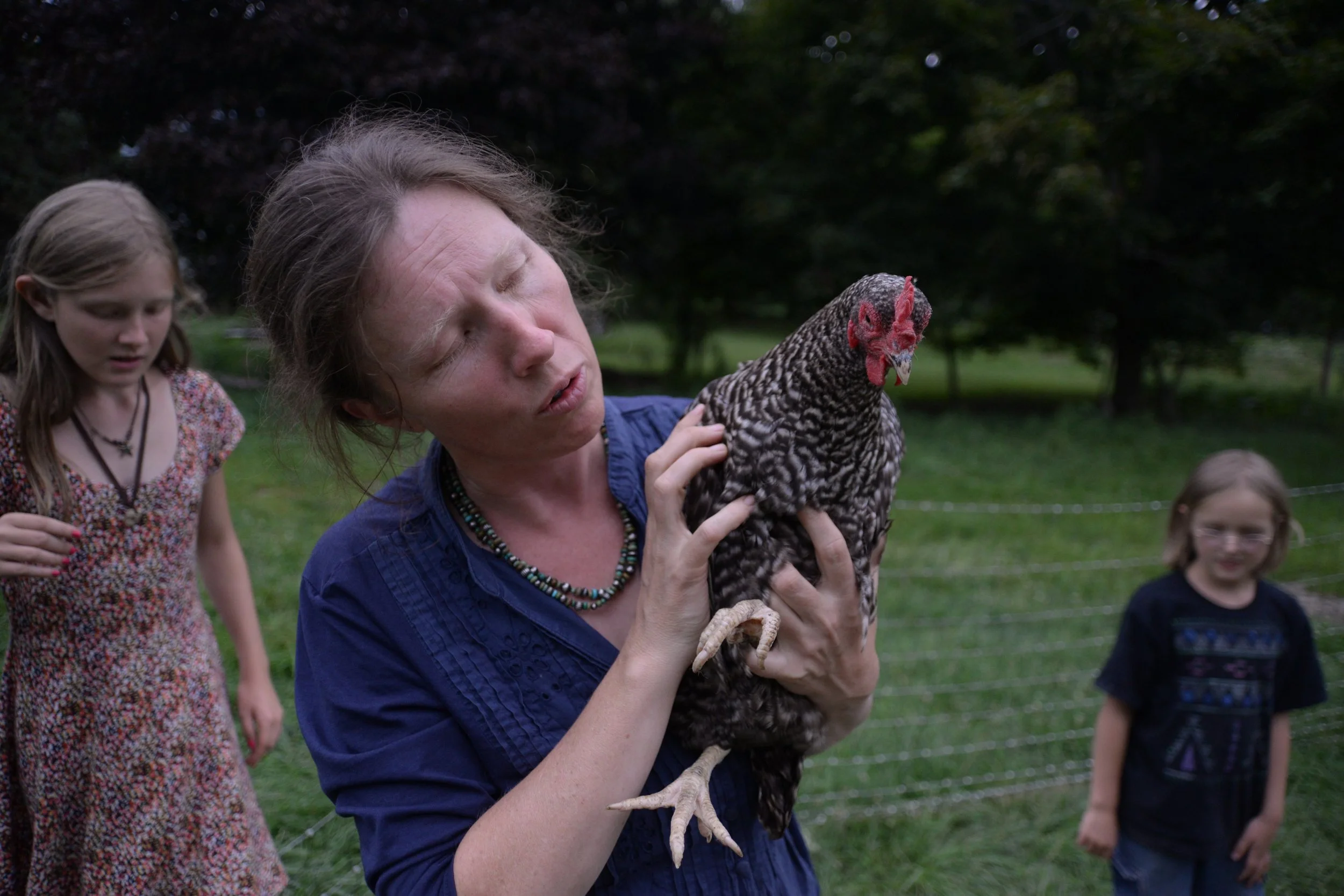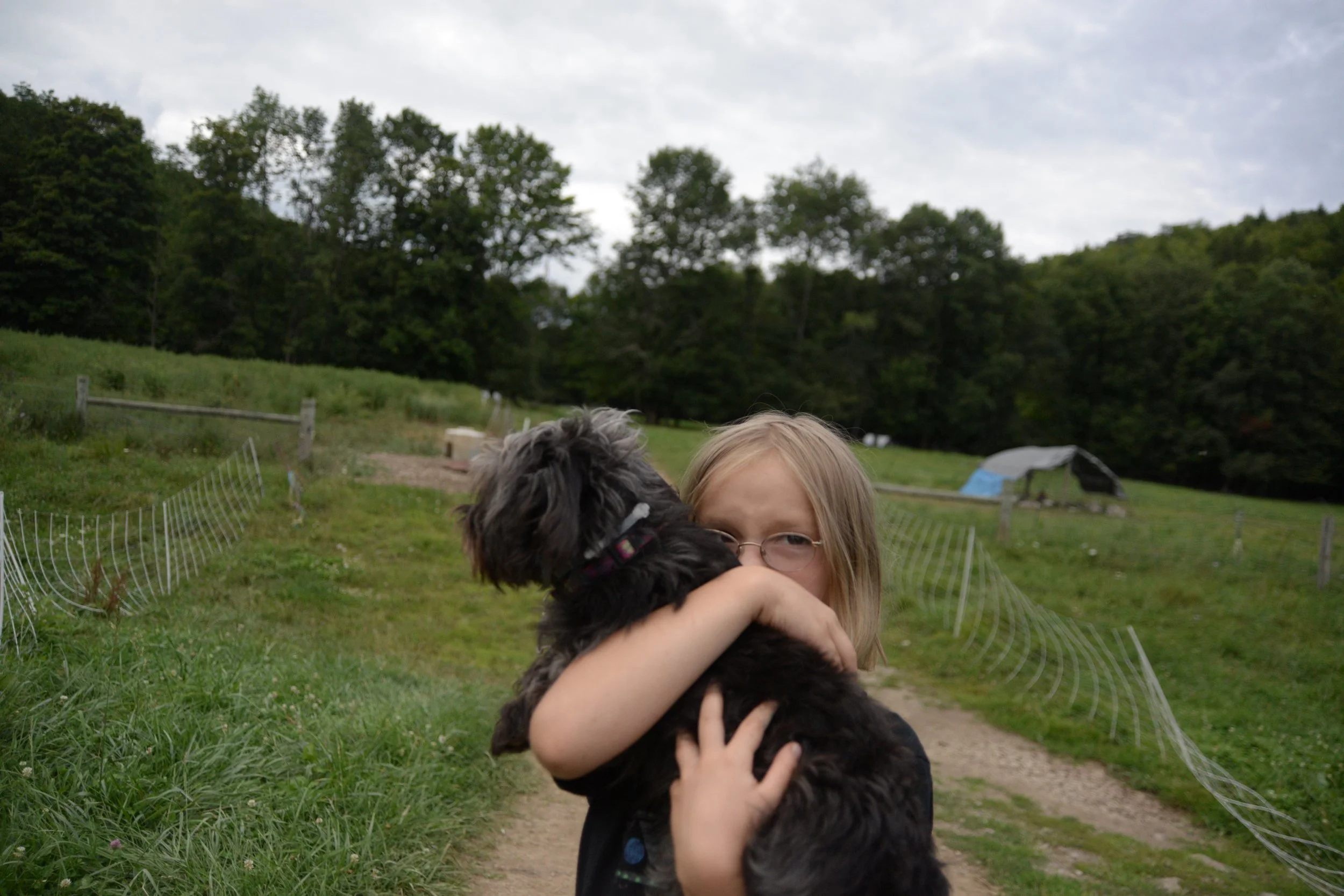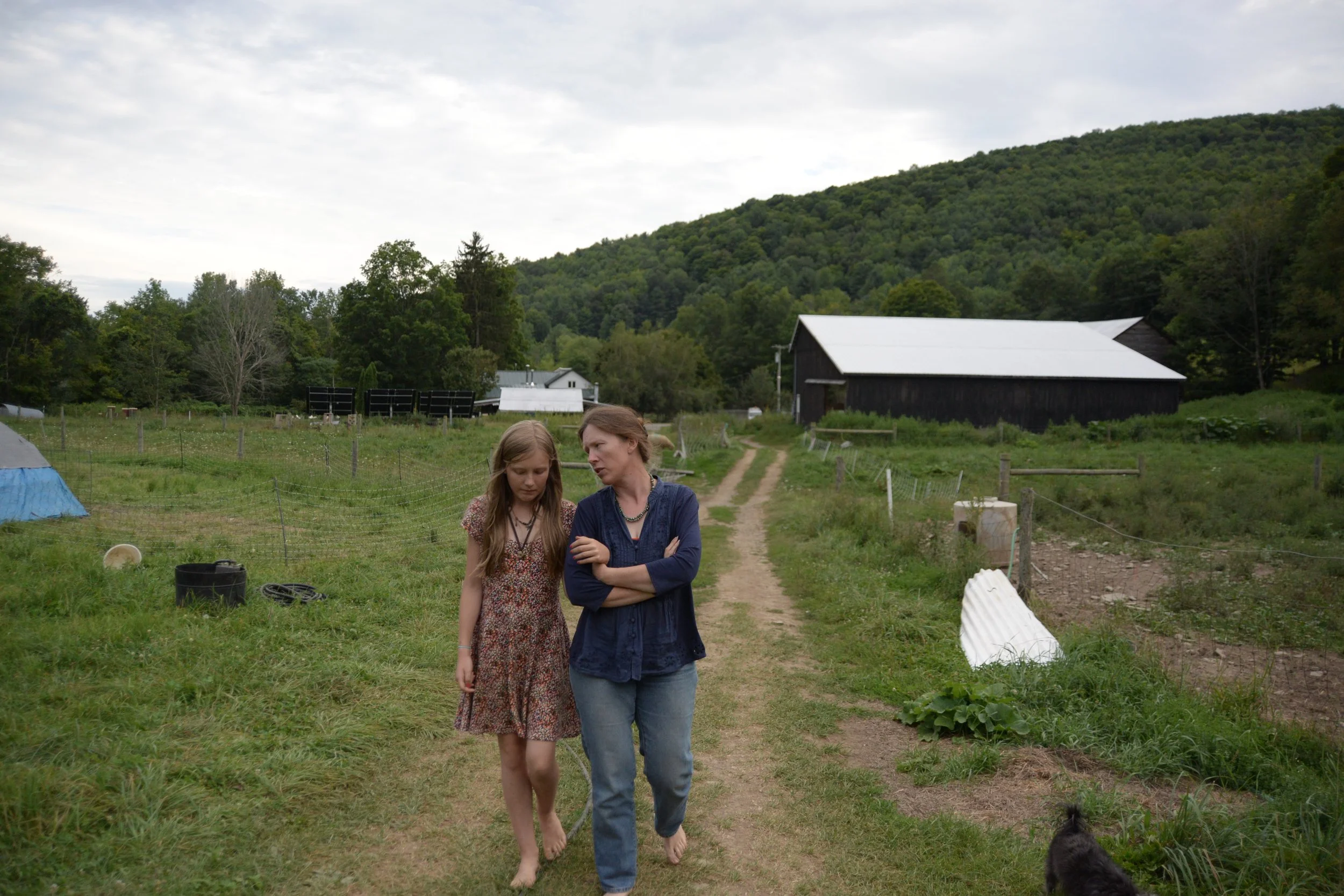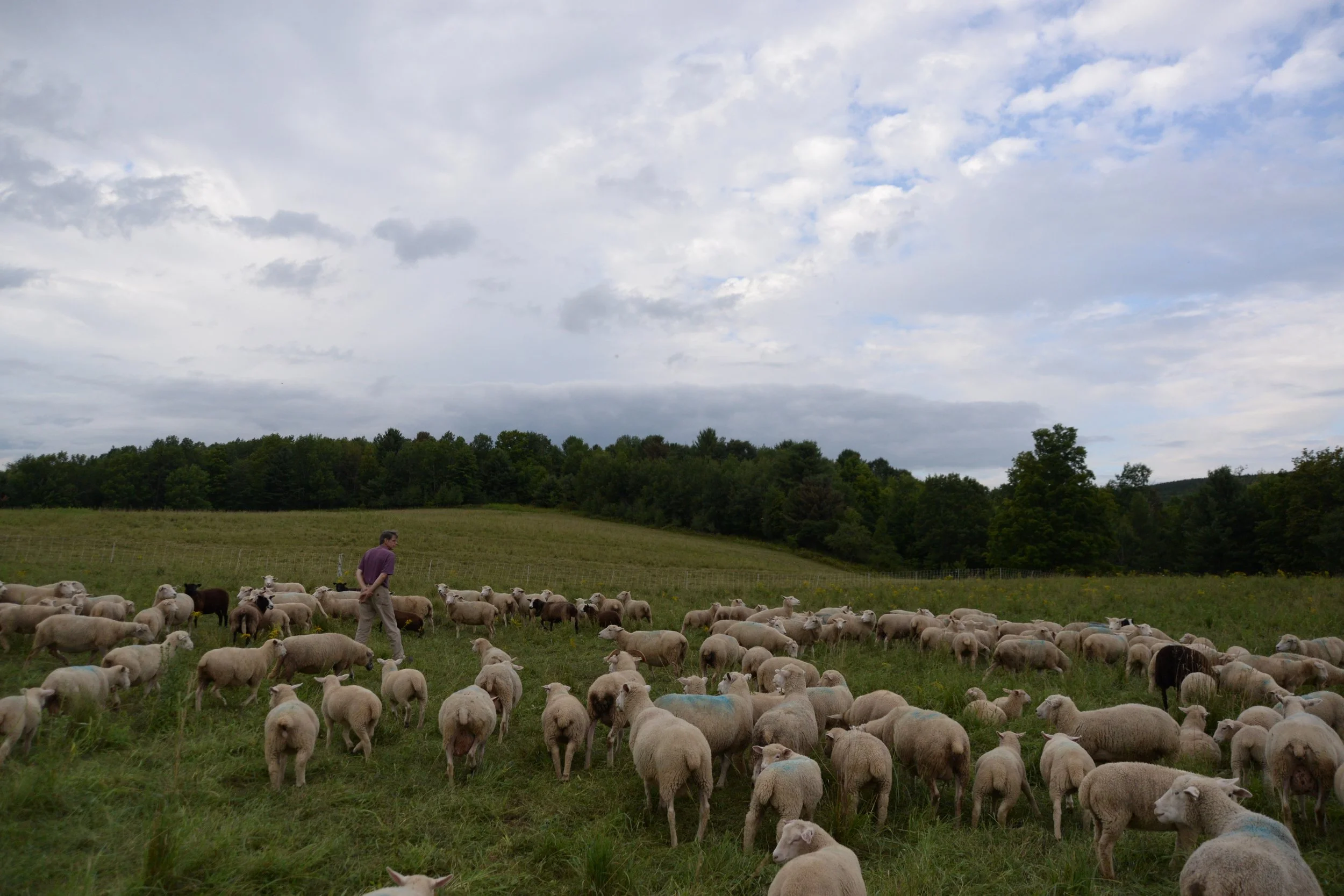THE
SECRET
VILLAGE
On a clear August day in the Schoharie County hamlet of West Fulton, a small handmade sign was stuck in a lawn, pointing toward a tall brown barn at the back of the property.
“Art show,” it read.
Inside, the former hops barn had been transformed into an art gallery with 54 paintings by Neil Driscoll, a local landscaper and sometimes painter. According to Driscoll, the show wasn’t his idea — the owner of the barn, and the nearby farmhouse, had asked him to show his work after seeing a few of his paintings.
A young couple parked their Volkswagen across the street at the West Fulton Park and strolled toward the barn. In the small park, a few kids ran around a picnic table covered with pop-up books. An intricate sailing ship rose from the pages of one left open on top of the pile while the kids ran down to the nearby creek.
The quiet hamlet is tucked in a hollow, surrounded by three hills — an auspicious location in Buddhist theology, according to resident Rebecca Brown, and supposedly a favorite Iroquois hunting ground, as well. It is on the way to nowhere other than West Fulton, and there is no cell service.
The owner of the hops barn was not around for the art show — she was busy with her work in New York City. Her identity was kept secret by everyone who knew her, except to describe her as a high-profile figure in the theater world. “She doesn’t want people to know she’s here,” Brown said.
Down the road, across the small and winding Panther Creek, live actors Ellen Lauren and J. Ed Araiza, who teach at Julliard and UCLA. Lauren is playing Clytemnestra in a performance of “Electra” in Japan, and Araiza is directing “Medea” in Finland.
Next door is another actor, and a theater director, around the corner a lighting designer. For a hamlet of about 300 people, West Fulton is unusually full of artists and performers. For most, it’s a refuge, an escape from the ego games of New York or Los Angeles, they say. But it’s also an opportunity, they’re realizing, to build their own kind of community.
Shannon Hayes is a second-generation farmer who grew up on Sap Bush Hollow Farm, which sits on a hill overlooking West Fulton and borrows the historic name of the community. She’s researched the hamlet’s roots for a novel she wrote, and has lived in the community through its ups and down.
“You wait a long time to see if someone is going to come along to do something great here,” she said in August as she drove out of the hamlet toward the farm. “And then all of sudden, it’s like the zeitgeist, everyone just decides, ‘No, we’re doing this ourselves.’ ”
Neil Driscoll, a local landscaper and sometimes painter, during an August exhibition of his paintings in a renovated hops barn in West Fulton.
Resident Rebecca Brown shuts the door on a barn-turned-yoga studio on her property in West Fulton.
The barns in West Fulton are full of surprises.
Down the road from Driscoll’s art show, Brown pulls open the sliding door of a standard red barn to reveal a renovated performance space and yoga studio. The barn belongs to neighbors Lauren and Araiza and was renovated by Brown’s husband, actor Boris McGiver, who may look familiar from shows like “House of Cards” and “Boardwalk Empire” or a dozen others.
Brown, a theater director herself, teaches yoga there. The barn was also one of the main performance spaces for the inaugural West Fulton Puppet Festival in July, which brought professional performers together with locals — especially children — to produce a two-day festival in which kids were as much performers as audience members.
The festival was free and included groups like Story Pirates from New York City, Andy Gaukel from Kentucky, Sandglass Theater from Vermont, and Schenectady’s The Puppet People, who performed a puppet adaptation of the Russian folk tale “The Firebird.”
Performances and workshops, full of handmade puppets, shadow theaters and music, took place in the barn and under a tent set up by the West Fulton Fire Department in the park and the park’s old schoolhouse, owned and opened for the occasion by the Town of Fulton Historical Society.
“For me, the puppet festival was so successful because it sold out — but it sold out with almost all local, Schoharie County audience members,” said Brown, a co-producer of the festival. “So it was really serving this community. And that’s what I want to do. The primary purpose is not to get big and famous, it’s really to take care of this community, this area and these people.”
Children play with elaborate pop-up books at a small park along Panther Creek.
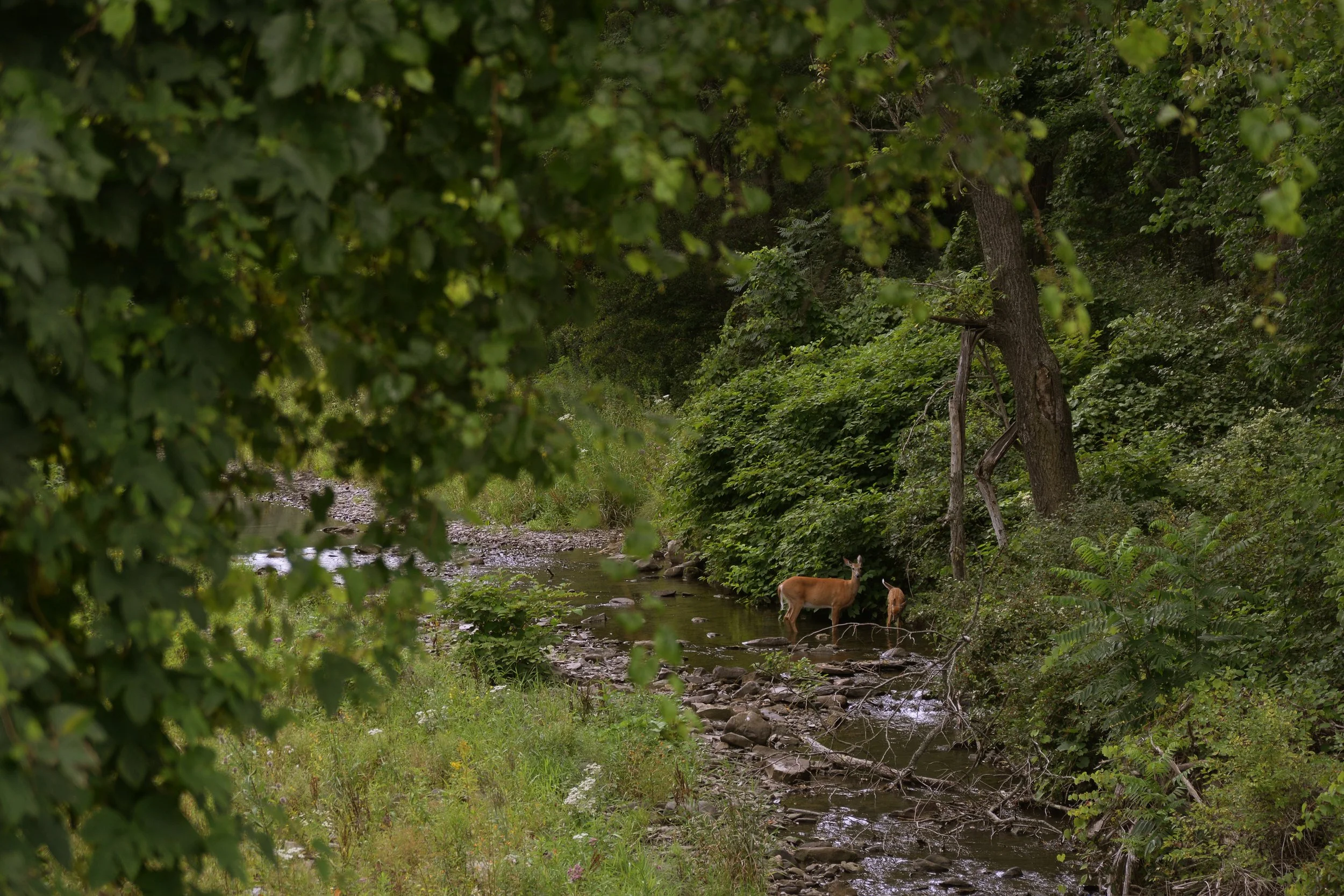
Brown and McGiver moved to West Fulton from the city around 2007, when their daughter was born, to live in the renovated 1831 Baptist church McGiver had grown up in with nine other siblings. He bought the house around 1991 and had been working on it ever since, with a workshop set up in a former haberdashery next door.
Having come from the suburbs of the West Coast, Brown said there was something magical, mythical, about being in a place like West Fulton, where families go back 200 years, with hollows, roads and hills named after them.
“It’s a very special place, I think, geographically,” she said. “It’s a hollow. And it is the northern part of the Appalachian range. You’re isolated here and you’re dependent on your neighbors. That was very clear during the flood. And it’s clear when you get four feet or six feet of snow. People will come and plow out your driveway without you even asking. There’s a real sense of community.”
Her daughter now attends Middleburgh Elementary School, where Brown said arts funding has been cut to the bone over the last 10 years. If kids aren’t getting the opportunity to take field trips to professional theater shows or art museums, she figured, why not just do it in West Fulton? They certainly have the talent.
The puppet festival, she hopes, was just the beginning.
The beginnings of Panther Creek Arts in a former grange hall.
Locals gathered for wine as the sun set after the gallery reception, and told me a story about the defunct helicopter in the back field one day suddenly, loudly, lifting off the ground a few meters before setting down again. When I said I’d like to speak with the alleged recluse who owns it, they said, “No, you really don’t.”
West Fulton residents joke that it’s not the kind of place you find by accident, and some of them — maybe all of them, to some extent — like it that way.
“You wouldn’t necessarily fi nd it if you didn’t know somebody here,” Brown said.
More accurately, you wouldn’t know there was reason to go unless you knew somebody there. For a lot of people who are there now, that somebody was a McGiver.
Boris McGiver’s father, actor John McGiver, who played in “The Manchurian Candidate,” “Midnight Cowboy,” and dozens of other films and TV shows between 1955 and 1975, moved from the Bronx to West Fulton in the 1950s to raise his children. His wife, Ruth, was a set designer.
After settling in, John founded the Everyman Theater and directed shows in Middleburgh, and Ruth started teaching yoga.
“She would teach yoga classes in the back room of her house before anyone in this country was doing yoga,” Brown said. “She was doing lots of esoteric things in this area. And they started to cultivate that kind of energy here, and they would bring their friends up from New York and from Hollywood, and Boris really continued that.”
Boris McGiver in one of the barns he transformed into a yoga studio and performance space.
Rebecca Brown in her yoga studio.
Rebecca carries garden vegetables into her home, formerly a church.
Brown, and most relative newcomers to West Fulton, are careful not to take all the credit, noting that the old grange hall has a theater and organ on the second floor.
Cornelia McGiver, sister of Boris, remembers going to the grange hall for community turkey dinners, Halloween parties and movie nights when she was a kid. At the intersection of West Fulton Road and Patria Road, the grange hall is right in the heart of “downtown West Fulton.”
So when she bought the grange hall a few years ago, she didn’t have to transform it into a theater, she only had to restore it and improve it. Now, it’s known as Panther Creeks Arts, “an old-time performance hall.”
The pump organ is still there, as is the stage. Cornelia, who lives with her husband in Germantown, has already hosted some community dinners herself, as well as movie nights and live music. This month , there will be another turkey dinner, with organic turkeys from Sap Bush Hollow Farm, and a hard cider tasting.
Eventually, she said, she wants to create a small market for local produce and maybe a bistro on the first floor that will host staged readings and other performances.
“I think there’s a sense of momentum here,” she said. “We just happen to be at this moment in time when there are many more people interested in setting up some sort of art community and having events happen than at any other time in that hamlet, I think.”
Shannon Hayes, of Sap Bush Hollow Farm, stopped down to the art show to drop off some monstrous zucchini from her garden, then left again to get dinner ready. Like many others in the community, she has plans: she bought the old post office on West Fulton Road, and is working to turn it into a farm store and cafe.
Outside the hop barn as the sun began to set, Boris and a handful of neighbors and friends drank wine and talked, trying to put their finger on what drew this crowd to West Fulton. Maybe the hills. Maybe there is something spiritual about the land. Maybe the lack of cell service, or the overgrown old gardens, or the tranquil creek.
Boris, who insisted he was “not good with words unless someone else wrote them,” suggested it was the combination of old-fashioned community spirit, raw talent and creativity unfettered by the demands of the professional worlds they all come from.
“That kind of allows for this perfectly composted foundation for actual artists to sprout,” he said. “Like a beautiful field that doesn’t scream, ‘Hey, look at me!’ It’s just there.”



